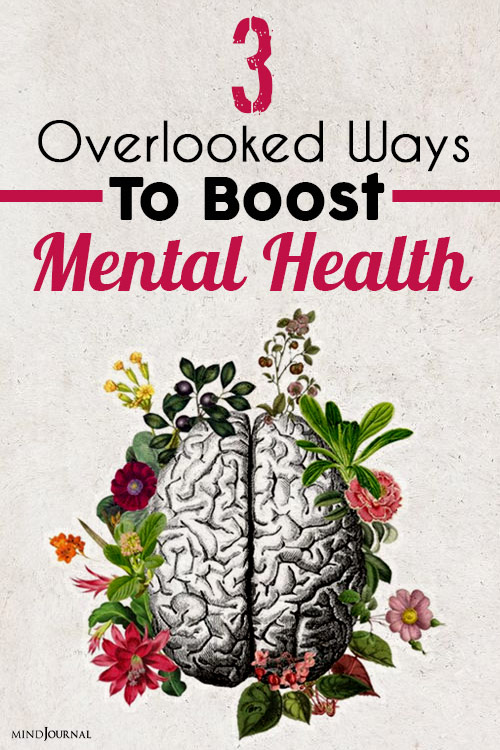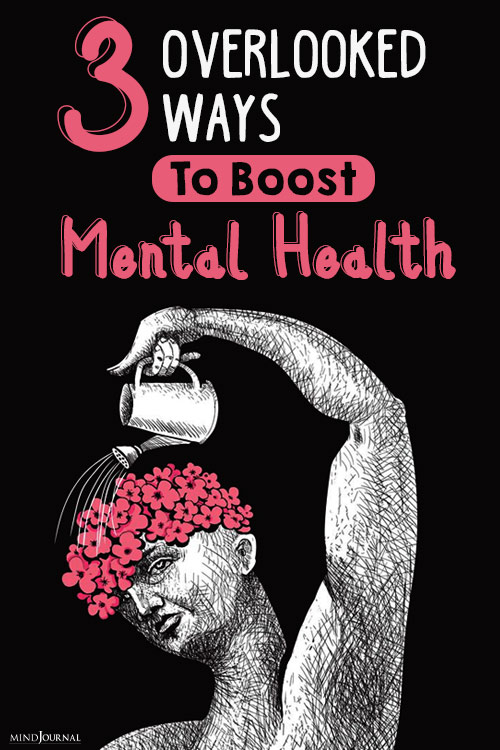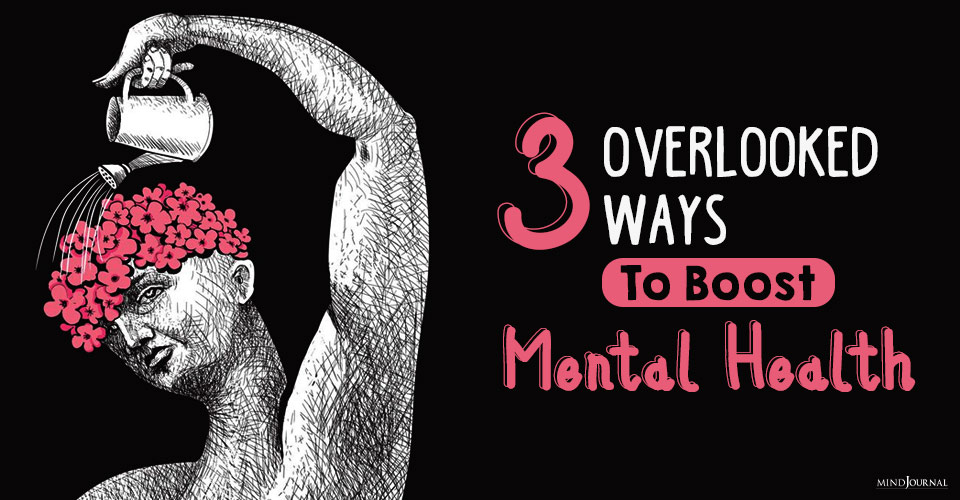“Mental health… is not a destination but a process. It’s about how you drive, not where you’re going.” — Noam Shpancer
Key Points
People too often ignore the "health" part of mental health, and holistic approaches to supporting it.
One's mental health can benefit from seeking out diverse novel experiences and embracing uncertainty and impermanence.
Research finds that simply talking and listening to others also delivers real mental-health benefits.
Mental health practitioners have helped many people heal and grow from a range of emotional conflicts that can harm their relationships, work, and overall lives. But where we’ve been less effective in helping people know what the “health” part of mental health really is, and what helps build it.
That is, what lies beyond healing early traumas and learning to manage and cope with their residue in adult life; and beyond learning how to engage in more productive, functioning relationships. All of that is important.
But we need a broader vision of mental health: a picture of continuous growth and expansion of your whole being—your mental, emotional, creative, and spiritual needs and capacities.
You’re a bio-psycho-social-spiritual entity, within your societal and cultural matrix. Every one of those facets of your being impacts every other. A simple example: We know that the microbiomes in your gut directly influence your mind and emotions, your longevity potential, and the health of your physical infrastructure. The same can be said for each other “part” of your being: “Mental” health is better understood as “whole-being” health.
Increasingly, empirical studies reveal overlooked approaches that can fuel and energize your whole-being health, when viewed from a broader, more integrated perspective.
But they are different from learning new “behaviors” or “techniques” to use in your relationships or in pursuit of goals. And they lie beyond managing and coping with the residue of old conflicts. Here are three worth considering—and practicing.
Related: 15 Simple Ways You Can Boost Your Emotional Health
3 Overlooked Ways To Boost Mental Health
1. Seek New And Diverse Experiences
A study published in Psychological Review found that an important but overlooked dimension of well-being is seeking out new life experiences, especially ones that may emerge unexpectedly—those marked by novelty or complexity, and that may require a change of perspective. It might be learning something new; participating in an activity beyond your zone of familiarity, or perhaps traveling somewhere you’ve never been.
One implication of this research: When you consciously seek out and open yourself to new experiences, you stimulate growth and expansion of multiple facets of your being. It filters into all dimensions of yourself. For example, it can alter some of your personality traits; your emotional attitudes; and how you treat your body. Overall, the new experiences contribute to the feeling, “This is why life is worth living.”
These findings highlight a link with feeling grateful for just being alive. Gratitude in this sense is deeper than feeling grateful for all you’ve achieved or acquired in your external, material life. Rather, it’s inner life awareness of your continuous connection with life in all its forms; an awakening of being part of a continuous whole, from the beginning of time.
Embracing new experiences and gratitude for your existence, at this moment, lifts you from conflicts or disappointments you might be experiencing. That expanded perspective is part of whole-being health.

2. Embrace The Anxiety Of Uncertainty…And Life’s Impermanence
Research highlights turning fear into positive energy for growth. A study published in the journal Emotion reveals the overlooked positive impact of experiencing uncertainty in your daily life—and we all experience uncertainty at various times.
This finding contrasts with assuming that uncertainty is necessarily stressful and can harm your health. Of course, there’s evidence that it can.
Further, this new research found that tolerating, and even embracing, the unpredictable nature of life stimulates a greater appreciation for simply being alive; for enjoying what is, in this moment of time. As we’ve learned during the pandemic, that time may indeed be brief and end without notice.
The researchers found that savoring the “small things” in life pulls you out of immersion in daily ups and downs, the fears and worries about things that you’re trying to control—and inevitably are unable to. That understanding adds to a healthy, whole-person recognition of just how impermanent things are. It helps you appreciate this moment that you occupy, in your brief lifetime.
Your entire being—that integrated entity of mind, emotions, spirit, and physical structure—then grows and expands. And that expansion helps free you from blind adherence to your social conditioning—the beliefs and life goals shaped by your social, cultural, and ethnic milieu that can impede the growth of your whole being.
Related: 6 Things You Can Do To Reduce Mental Stress
3. Talking And Listening To Others
Another overlooked way to grow the “health” part of mental health sounds simple, but research finds it has particular benefit for your essential cognitive and mental capacities as you age: engaging in small talk with people and listening to them in return. It might be an encounter with a grocery-store clerk or passing the time for a few moments with a neighbor.
This study of over 1,800 participants found that, according to co-author Nicholas Epley, “connecting with others in meaningful ways tends to make people happier,” and that connecting with others in deep and meaningful ways increased well-being. That, in turn, contributes to the realm of your whole-person mental health. The study, from the University of Chicago, was published in the Journal of Personality and Social Psychology.
Similarly, an NYU study published in JAMA Network Open found that engaging with people on whom you can count to simply listen to you when you need to talk and connect with others is associated with greater cognitive resilience as you age; it’s a buffer to the effects of brain aging and disease.
And new findings from Georgetown University reveal that age does not automatically lead to declining mental abilities. Contrary to prevailing thinking, this large-scale research found that those capacities—especially the ability to focus and orient yourself to whatever you’re engaging with—actually improve with age, as you use them.
These findings add to evidence of the interconnectedness of all dimensions of your being, as your healthy cognitive capacities stimulate the other facets of yourself.
All of these findings underscore the overall mental health implications of engaging fully with life—appreciating it within this brief moment of time we occupy—and staying mindful of how transitory and impermanent everything is.
Douglas LaBier can be contacted via his website labier.com or email [email protected].
Written By Douglas LaBier Originally Appeared On Psychology Today










Leave a Reply
You must be logged in to post a comment.